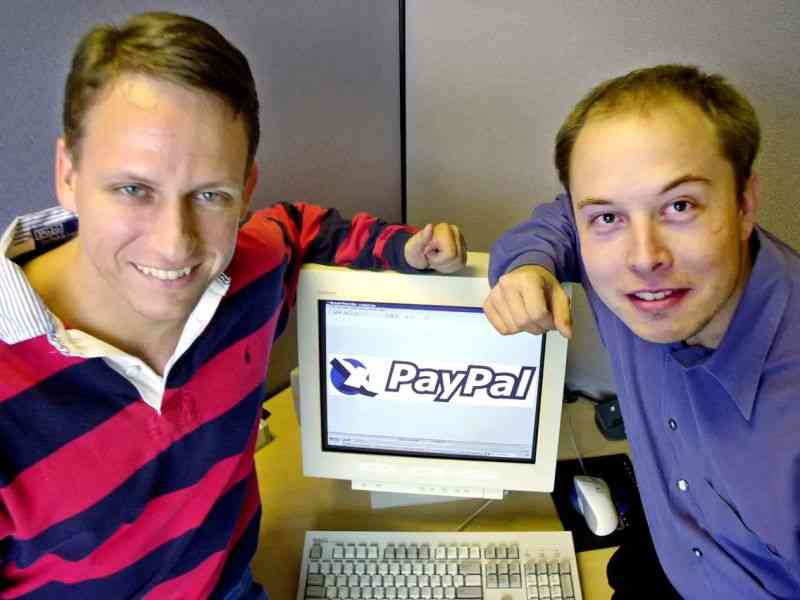You have the vision. You have the money. You have the market insight. But there is one big problem. The future of your business depends on a skill you do not have.
You need to hire a "Backend Developer."
This person controls your data, your security, and your future success. But to you, their work looks like a black box. You cannot read the code. You cannot fix the bugs. You are effectively negotiating a construction contract for a skyscraper, but you do not know the difference between the foundation and the roof.
It is scary. Industry data suggests a bad technical hire costs over $33,000 directly. But the indirect cost? It can be hundreds of thousands of dollars in "technical debt" and delayed launches.
Here is the good news. You do not need to learn to code to hire a coder. You just need to learn Logic-Literacy.
This guide will give you the exact questions, the red flags, and the "cheat codes" to hire a world-class Laravel PHP developer, even if you have never written a line of code in your life.
Part 1: Understand the Machine (The Restaurant Analogy)
You cannot interview someone if you do not understand what they do. The best way to understand web development is to think of a Restaurant.
The Frontend (Client-Side): This is the Dining Room. It is the menu, the paint on the walls, and the tables. It is what your customer sees. If a button is the wrong color, you can see it immediately.
The Backend (Server-Side): This is the Kitchen. Your customers never see it. But this is where the raw ingredients (data) are turned into a meal (information). If the kitchen is dirty or disorganized, the restaurant fails.
The API: This is the Waiter. The waiter takes the order from the customer to the kitchen and brings the food back. The waiter does not cook; they just carry messages.
The Database: This is the Pantry. This is where ingredients are stored. If the pantry is messy, the chef cannot find the salt, and the food comes out late.
When you hire a Backend Developer, you are hiring a Head Chef. You do not need to know how to chop an onion perfectly. You just need to know if they understand hygiene, inventory, and how to feed 1,000 people during a rush.
Part 2: Why You Should Look for a "Laravel" Developer
For most startups, you do not need a developer who reinvents the wheel. You need speed and reliability. This is why many founders choose PHP Laravel.
Laravel is a framework that powers huge sites like the BBC and simple startups alike. It is great for founders because:
Rapid Prototyping: It lets developers build your "MVP" (Minimum Viable Product) very fast.
Market Demand: There is a huge supply of talent. Senior Laravel devs are affordable compared to other niche languages.
Built-in Tools: It comes with tools like "Eloquent" (to manage your database easily) and "Horizon" (to handle background tasks).
A great developer like Joy Fajendagba, who built MirrorLog, uses Laravel to handle thousands of users cheaply and securely. For example, using Laravel efficiently allows a platform to handle 3,500 concurrent users on a server that costs less than $20 a month. That is the power of the right tool in the right hands.
Part 3: The "Pizza Shop" Interview Script
Do not ask them to "reverse a binary tree" or solve complex math puzzles. Those tests are useless for your business.
Instead, use the Pizza Shop Test. Ask them to design a backend for a Domino’s Pizza delivery app without writing code.
Here are the questions to ask, and the answers you must listen for.
Question 1: "Where do we store the orders?"
You want to know if they care about data safety.
Good Answer: "We need a Relational Database (SQL) like MySQL. Orders involve money. We cannot lose an order just to be 'fast'. We need strict records.".
Bad Answer: "We should use a NoSQL database like MongoDB because it is faster to write code." This is a red flag. A bank or a shop should never sacrifice safety for speed.
Question 2: "It is Super Bowl Sunday. Orders jump from 100 to 10,000 an hour. What happens?"
You are testing for Scalability.
Good Answer: "We need a Load Balancer. It acts like a host at the door, assigning customers to different waiters so no single person is overwhelmed. We might need to add more servers temporarily.".
The "Expert" Signal: A truly great developer will mention Queues. They might say, "We use Laravel Horizon to put orders in a line, so the kitchen doesn't crash.".
Question 3: "How do we handle user Login?"
You are testing their business sense.
Good Answer: "We should use a trusted package like Laravel Sanctum or a service like Auth0. It is safer and saves time.".
Bad Answer: "I will build a custom login system from scratch. It will only take me a weekend.". This is dangerous. Custom security systems usually have holes that hackers love.
Part 4: Specific Laravel Questions (The Cheat Codes)
If you are hiring for a Laravel role specifically, ask these three questions. You do not need to know the answer, just look for the keywords in their explanation.
1. "Explain 'Eloquent' to me like I am five."
What you want to hear: They should say it helps them talk to the database like a human, not a robot. It turns "SELECT * FROM users" into simple code like "User::all()".
2. "How do you handle 'Migrations' on a live site?"
What you want to hear: A migration is like updating the blueprint of a building. A pro will talk about how to do this without "downtime" (breaking the site for users).
3. "What is the N+1 problem and how do you fix it?"
What you want to hear: This is a common mistake where the "waiter" makes 100 trips to the kitchen for 100 customers instead of one big trip. They should mention "Eager Loading" as the fix.
For more tips like this, check out the Laravel Tips and Guides series on MirrorLog.
Part 5: The Red Flags (When to Run Away)
You must watch out for these warning signs. They are more dangerous than bad code.
The "Lone Wolf": They refuse to use standard tools and want to build their own framework because existing ones are "too big". If they leave, no one else will be able to read their code.
The "Kubernetes" Trap: If you are a small startup and they say you need "Kubernetes" or "Microservices," run away. This is like buying a Ferrari engine for a bicycle. It is too complex and expensive for a new business.
The "Yes Man": If they agree to every deadline without asking questions, they are inexperienced. A senior partner will push back to protect the quality of the product.
Jargon Overload: If they cannot explain a concept simply, they do not understand it well enough. Beware of candidates who use big words to make you feel stupid.
Part 6: How to Verify Their Skills (Without Coding)
Do not trust. Verify.
1. The Paid Take-Home Test
Pay them $200-$500 to do a small task that takes 4-6 hours52.
The Task: "Build a simple page where I can upload a CSV file of orders, and it saves them to the database.".
The Test: Try to break it. Upload a broken file. Does the app crash, or does it give a nice error message?.
2. The README Check
Did they include a "README" file that explains how to run the app in simple English?55. If they didn't, they lack communication skills.
3. The "Rent-a-CTO" Audit
Once you have a final candidate, pay a senior freelancer $200 just to look at their code for one hour. Ask them: "Is this code clean? Is it safe?" This $200 can save you $50,000.
You Are The Executive
Hiring a backend developer is not about magic. It is about management. You are looking for a Product Architect, not a code-monkey.
Look for someone who treats your code like a business asset. Look for someone who builds for reliability, not for vanity. And remember, the best developers are the ones who can explain why they are doing what they are doing.
If you follow this cheat sheet, you will filter out 90% of the fakes. You will find a partner who can build a platform as robust as MirrorLog, capable of growing with your vision from day one.
Now, go find your Head Chef.









Be the first to show love! 🚀
Start something amazing - your support inspires creators!